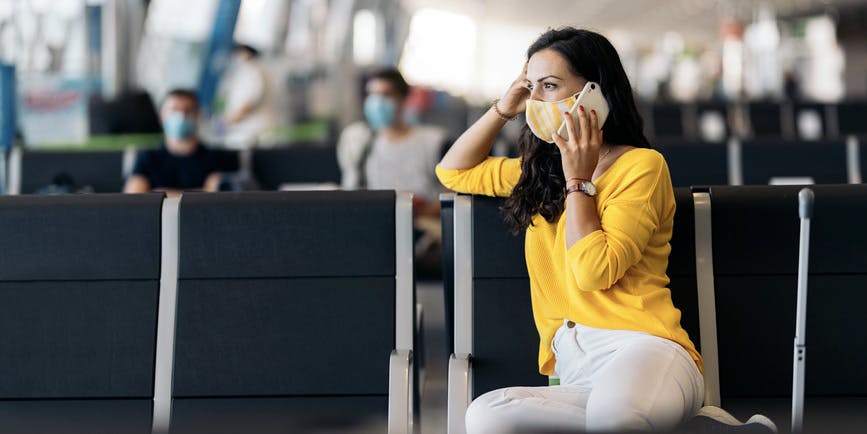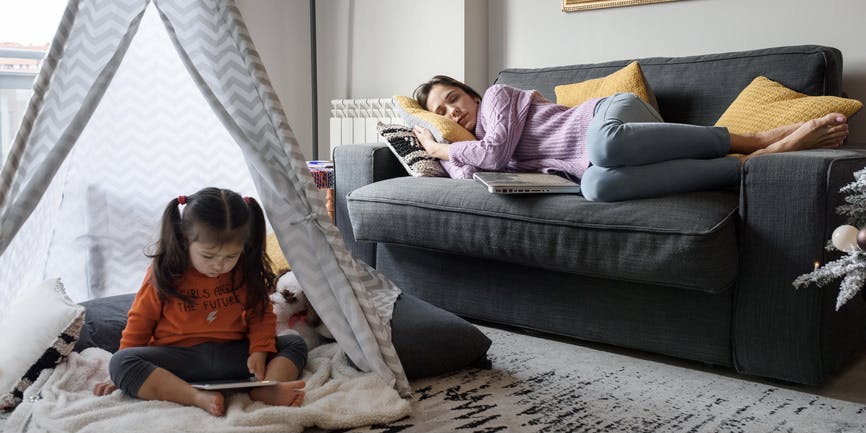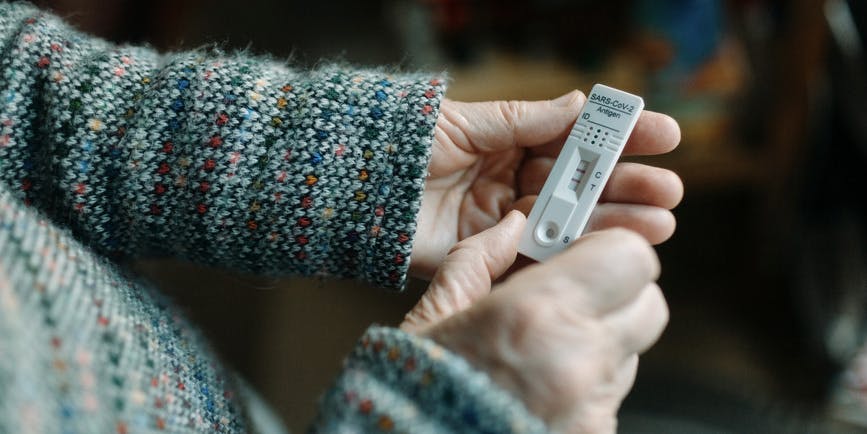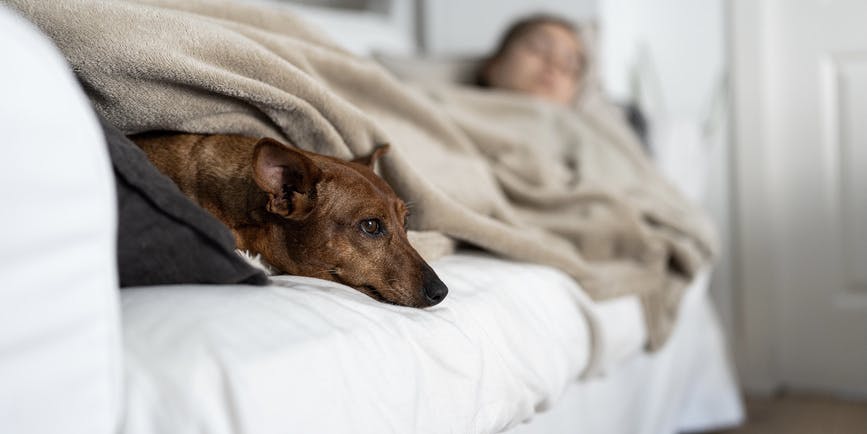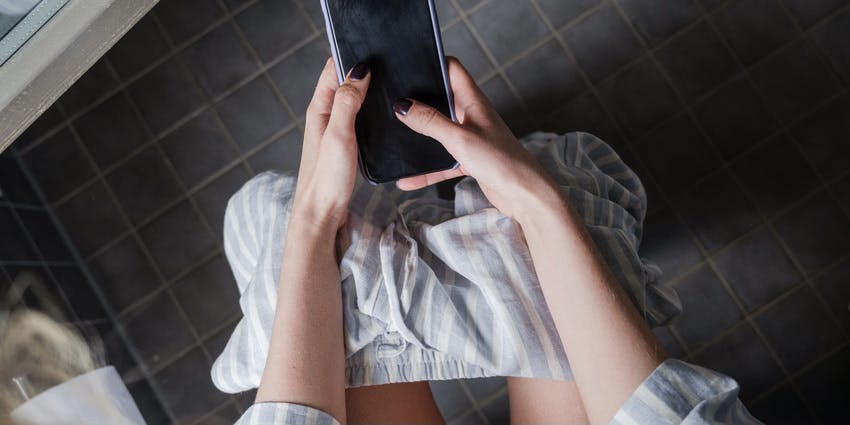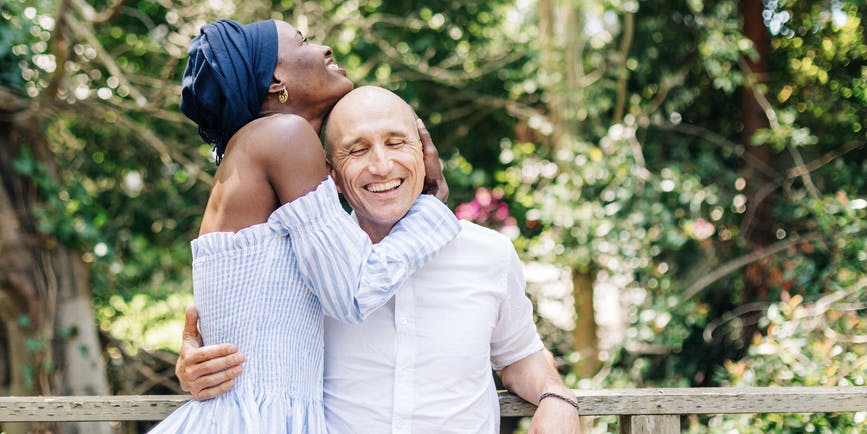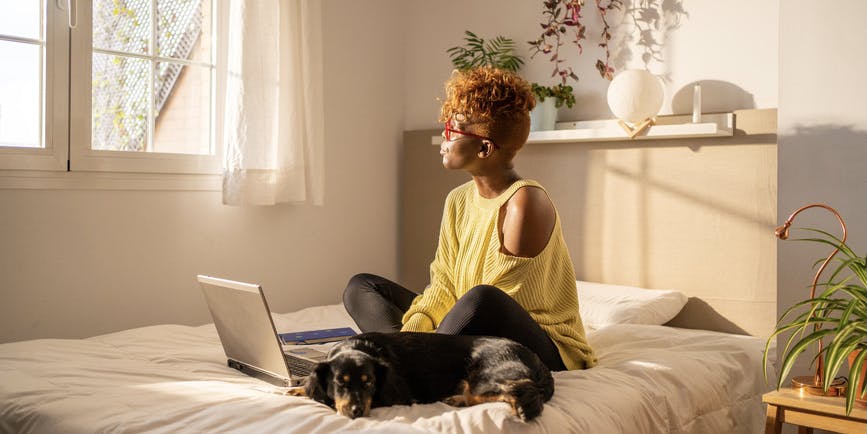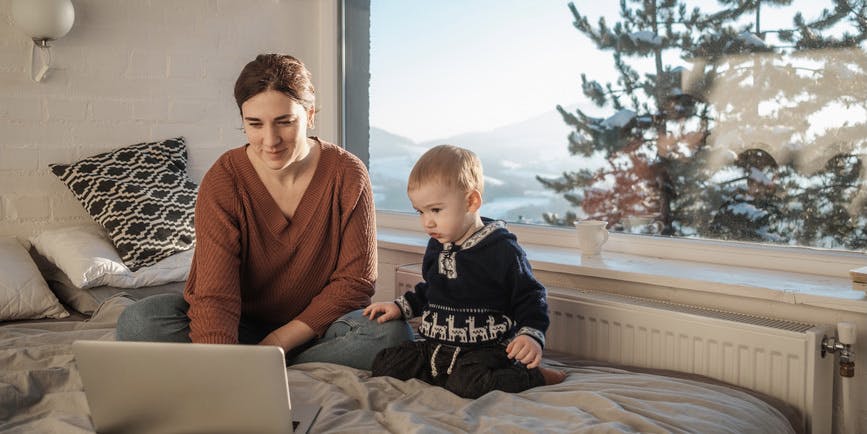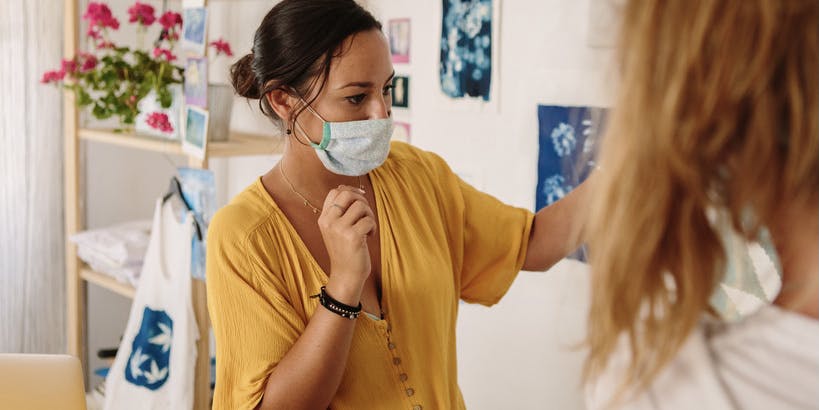
Do I have Covid-19, a cold, the flu or RSV?
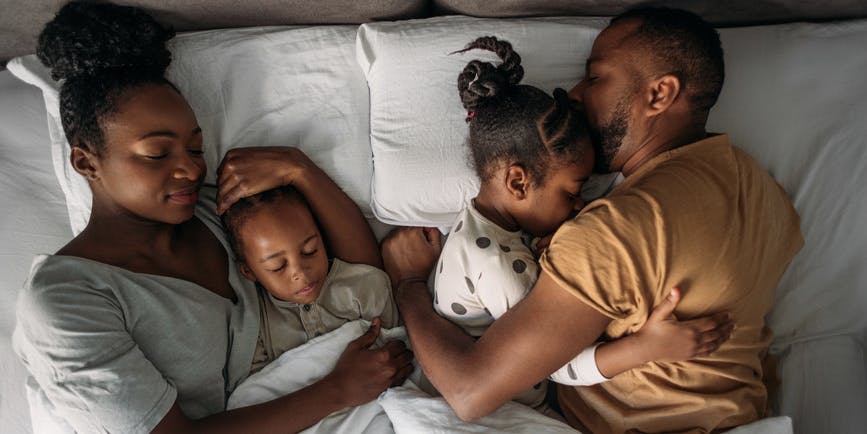
Topics
Key Points:
- Different viruses cause Covid-19, the cold, influenza and RSV. But the illnesses share many symptoms, so detecting which virus you have can be tricky.
- You can have more than one respiratory illness simultaneously—but it’s not common.
- At-home combination PCR tests for Covid-19, the flu and RSV do exist. But they can be expensive if not covered by health insurance.
Respiratory viruses can spread and hit us hard when we huddle inside to escape the winter chill. On top of getting your yearly Covid-19 vaccine, flu vaccine and RSV vaccine, staying home when sick is the best way to heal and keep others safe.
But how can you tell if you have Covid-19, rhinovirus (a cold), the flu or respiratory syncytial virus (RSV)?
Here are some helpful distinctions to consider this virus season. Plus, how to get Covid-19 and flu treatment from Dr. B through a convenient online consultation.
What’s the difference between Covid, a cold, flu and RSV?
Different viruses cause the common cold, Covid-19, the flu and RSV. They spread through the air via infected drops that enter our body through our nose, mouth and (sometimes) eyes. They can also live on surfaces and spread when we touch the infected surface and then touch our face.
Because different viruses cause them, a cold can’t turn into Covid-19, which can’t turn into RSV. The flu virus can’t cause RSV. And RSV can’t morph into Covid-19 or the flu.
Here are some ways to figure out which virus you have:
A cold:
- The common cold is usually caused by rhinovirus.
- Rhinovirus can cause no symptoms, mild symptoms, or severe symptoms.
- Symptoms include a runny nose and/or congestion, coughing, sneezing, a sore throat, headache, fever and body aches.
- Symptoms usually last less than one week but can last up to two weeks.
- Most doctors do not test for rhinovirus unless you have difficulty breathing, an asthma attack, bronchitis, sinus infection, ear infection or pneumonia.
The flu
- The flu is caused by the influenza virus.
- Flu symptoms usually hit hard and fast.
- Symptoms include fevers, muscle aches, chills, sweats, fatigue, and headaches.
- You can test positive for the flu one day before symptoms start and up to seven days after feeling sick.
- You’re most contagious during the first three or four days of symptoms. But some people—including infants and those immunocompromised from other health conditions—can be contagious for more than a week.
RSV (respiratory syncytial virus)
- RSV often feels like a mild cold, with symptoms like a runny nose, coughing, sneezing, wheezing, fever and decreased appetite.
- Most people are contagious for 3-8 days (a day or two before they start feeling sick) and feel better in a week. People with compromised immune systems can spread RSV for up to a month.
- RSV can be dangerous for infants and is the most common cause of bronchiolitis and pneumonia.
Covid-19
- Covid-19 is caused by SARS-CoV-2.
- Current mild-to-moderate symptoms include headaches, fatigue, muscle aches, fevers or chills, sore throat, congestion or a runny nose, nausea, vomiting and diarrhea.
- People with symptomatic infections reach peak viral load between days three and six. But you can be contagious for ten days after symptoms present.
Can you have Covid, a cold, flu and RSV at the same time?
You can have more than one virus at the same time. But research suggests this is rare.
When our immune system detects a virus, it deems it a threat and revs up with a general protective response. After that, it homes in on the particular virus. So if we’re already armed to fight one virus, it can be difficult for a second infection to take hold.
Different people make varying immune responses. So there’s no way to know how long your immune system will stay on guard, and you may get another virus within a few weeks or months. That’s why we’ve seen Covid-19, the flu and RSV make individual waves—not peak together.
Can I get at-home tests for Covid-19, flu and RSV?
For all three viruses, at-home tests are available. They vary in ease of use, cost and speed of results.
Covid tests
At-home Covid-19 tests detect antigen proteins from SARS-CoV-2. They’re less reliable than PCR tests, which detect SARS-CoV-2 RNA and must be done by a health professional. To guarantee you’re negative for infection, take one test upon your first symptoms and repeat the test every 48 hours (or few days) until symptoms cease.
Every household can get four free Covid-19 tests through the federal government. Some insurance carriers will pay for or reimburse you for Covid-19 tests bought at your local pharmacy.
Combination tests for flu and Covid-19
As of fall 2024, the FDA has authorized nine at-home combination tests for Covid-19 and influenza. They’re similar to at-home Covid-19 tests in that you insert a sample from your nose into a small device. But in this case, it takes about 30 minutes to see your results, and the test reveals whether you have Covid-19 or influenza type A or B.
These tests are generally more costly than Covid-19 tests, averaging around $50 each.
But if you fall ill during flu season (November through February) and can afford one, a combination test can help you avoid a doctor’s visit. If you’re at risk for severe illness, you’ll want to get on antiviral medication within 48 hours of your first symptoms. Knowing which virus you have is vital for accurate treatment.
Combination tests for flu, RSV and Covid-19
LabCorp makes an at-home combination test for Covid-19, the flu and RSV.
You take a sample, send it in for lab testing (using included postage), and get the results back in one or two days. You’ll need a prescription from your health provider to have insurance over the cost. Otherwise, the test costs around $130 out of pocket.
How to get Covid-19 and flu treatment online
To help you access quality health care when you’re feeling sick, Dr. B offers convenient online consultations for $15. Licensed medical providers are available seven days a week—365 days a year—and often review consultations within three working hours.
If a provider recommends antiviral treatment, they’ll send the prescription to your pharmacy. We’ll even help you find the lowest medication cost at local pharmacies and send you a drug discount card to guarantee that low price.
So don’t sniff and struggle your way into your doctor’s office. Start a convenient flu consultation or streamlined Covid-19 consultation today.
Sources:
Blum, Dani. (2024). New Covid tests are here. They test for flu, too. The New York Times.
Boucau, J., et al. (2022). Duration of shedding of culturable virus in SARS-CoV-2 Omicron (BA.1) infection. New England Journal of Medicine.
The Centers for Disease Control and Prevention. (2024). About rhinoviruses.
The Centers for Disease Control and Prevention. (2024). About Covid-19.
The Centers for Disease Control and Prevention. (2024). Influenza.
The Centers for Disease Control and Prevention. (2024). Respiratory syncytial virus.
Manjarrez, A. (2022). What happens when you catch more than one virus? The Scientist.
Topics
Sign up for the free Dr. B newsletter for a weekly report on the latest in healthcare + research-based advice for staying healthy and mentally well.
Related articles

